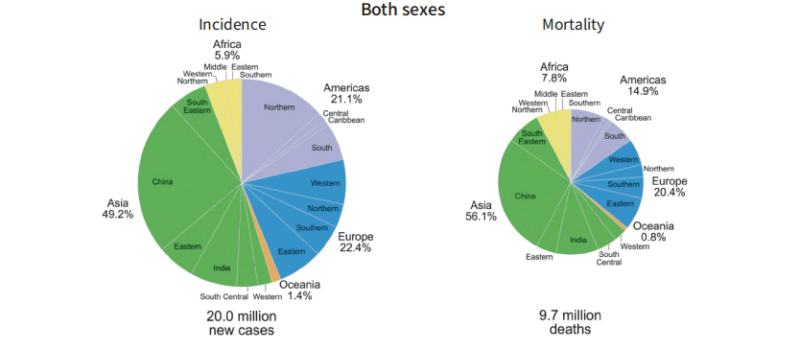Health
What Happens During the Egg Retrieval Process in IVF?

When couples face difficulties in conceiving, IVF (In Vitro Fertilization) often becomes a beacon of hope. But have you ever wondered what really happens behind the scenes of this life-changing procedure? Specifically, the egg retrieval process can sound intimidating at first, but it’s a lot more straightforward than you might think.
Think of it like picking the ripest apples from a tree. The doctors carefully select and collect the best eggs from the ovaries to help you grow your dream family. In this article, we’ll walk you step by step through the process, demystifying every detail so you know exactly what to expect.
Discover the egg retrieval process in IVF. Insights from a top IVF specialist in Delhi & IVF doctor in New Delhi. Simple, easy-to-understand guide.
1. What is egg retrieval in IVF?
The egg retrieval process is an important step in IVF. It involves removing mature eggs from the ovaries of a woman so that they can be fertilized in a laboratory with sperm. It usually takes 20-30 minutes, and it is performed under mild sedation. The process is similar to assembling the ingredients for a recipe that may result in a brand new life.
2. Why is egg retrieval important?
It would be impossible to fertilize without eggs. The quantity and quality of the eggs that are retrieved is important for IVF success. The best apples make the best pie. Retrieving healthy eggs increases the chance of a pregnancy.
3. When does egg retrieval take place?
After stimulating the ovaries over a period of 10-14 days, doctors perform egg extraction. The doctors time the egg retrieval procedure to perfection after the eggs have reached maturity. This is usually 34-36 hours following a special triggering injection.
4. How do doctors prepare you for egg retrieval?
Your IVF doctor will perform the following:
- Use ultrasound scans for a check on follicle development.
- Tests of blood can be used to monitor the levels of hormones.
- To finalize the maturation of eggs, prescribe a triggershot (human gonadotropin hCG).
The preparation will ensure that everything is in place for a successful collection of eggs.
5. What happens when you stimulate the ovaries?
In the stimulation phase you will receive daily hormone injections to stimulate more than one follicle (where eggs are developed) rather than just one as is done in natural cycles. The goal is increasing the number of eggs that can be retrieved.
This might feel a bit like tending a garden, giving your body the correct nutrients (hormones), to encourage multiple buds to blossom (follicles).
6. Monitor the Ovarian Response
Your New Delhi IVF doctor will monitor your ovarian response frequently via:
- Ultrasound scans are used to measure the size and growth of follicles.
- Blood Tests for tracking estrogen levels
These tests help determine when to trigger the shot for optimal egg maturation.
7. Trigger Injection: The Final Countdown
The trigger injection is an injectable hormone that signals the body to prepare itself for ovulation. The timing is crucial--usually given around 36 hours prior to retrieval.
You can set your alarm to be ready when you need to be.
8. What to expect on the Day of Egg Retrieval
On retrieval day:
- Arrive at the clinic in the early morning.
- Most clinics will recommend a light breakfast, but some may advise fasting for several hours.
- To make the procedure comfortable, mild sedation or anesthesia is administered.
You can expect to spend between 2-3 hours in the clinic including recovery time.
9. The Egg Retrieval Process - Step by step
Here is a quick breakdown:
- Sedation To eliminate anxiety and pain, you're sedated and made comfortable.
- Ultrasound Guided Injection: An ultrasonic-guided thin needle is inserted into the ovaries through the vaginal walls.
- Aspiration : Fluid is gently aspirated from the follicles into test tubes.
- Egg Identification: The laboratory immediately examines and identifies the eggs in the fluid.
After the procedure, you will rest for about an hour.
10. There are some risks and discomforts you may experience
Although generally safe, some women may experience:
- Mild cramping and bloating.
- Light bleeding or spotting.
- Rare complications such as infection or ovarian Hyperstimulation Syndrome (OHSS).
Follow your doctor's advice and report any abnormal symptoms immediately.
11. Tips for Recovery and Care After Egg Retrieval
After surgery, you need gentle post-procedure care.
- Rest the rest of the day.
- Stay hydrated by drinking plenty of fluids.
- Avoid strenuous activity for a few days.
If discomfort persists, don't be afraid to contact your New Delhi IVF doctor.
12. What happens to the eggs that are retrieved?
The eggs are taken immediately to the laboratory where they:
- The eggs that are mature can be identified.
- The sperm is then added to the eggs for fertilization.
- The resulting embryos are then cultured for several days before being transferred.
Imagine preparing the ingredients and mixing them carefully to create a perfect dish.
13. How to choose the right IVF doctor in New Delhi
The success of IVF depends on choosing the right doctor. You should look for:
- Experience and success rates that have been proven.
- Communication that is transparent
- Personalized care and attention.
The best IVF specialist in Delhi will listen to your needs and guide you with expert knowledge.
14. When should you consult the top IVF specialist in Delhi?
When to consult an expert
- You have had multiple miscarriages.
- You've tried to conceive without success for more than a year.
- You are over 35 years old and you want to know more about fertility.
Early consultations can increase your success chances by helping you to plan your journey wisely.
15. Conclusion and Takeaway
It may seem complicated, but the egg extraction process for IVF is a well-organized and carefully monitored procedure that's designed to ensure your comfort and success. Understanding each step, from ovarian stimulation through to egg fertilisation, will help you feel in control and better prepared for your journey.
It's important to choose professionals with experience, whether you are looking for the best IVF specialist in Delhi, or an top IVF doctor New Delhi. This is a partnership in which your goal of becoming a parent is shared.
FAQs
1. The process of egg retrieval is not painful for most women due to the sedation. After the procedure, some mild cramping and bloating is normal.
2. The egg retrieval procedure takes approximately 20-30 minutes. However, the entire visit can last up to 2-3 hours. This includes preparation and recovery.
3. The number of eggs retrieved varies depending on the individual response to stimulation.
4. You should always follow the specific instructions of your New Delhi IVF doctor.
5. If no eggs are collected, it's rare but your IVF specialist can analyze the reason and change your treatment plan in order to increase your chances of conceiving during your next cycle.
Source:
Click for the: Full Story
You might like













 Close Menu
Close Menu